Unilever gets a lot of the spotlight these days on the sustainability horizon. This will help you understand why. I felt compelled to shine a light on the new report that Unilever has published on human rights. This is by far one of the best corporate accounts of position, practice, performance and intention on this subject that I have seen over the years, and again, Unilever raises the bar for advancing sustainability practice and disclosure. With this report, Unilever turns human rights from an onerous obligation that's reported by most companies with zero bells and whistles and a dollop of misplaced righteousness into a fun, colorfully-presented, superbly constructed and actually interesting 64 pages. This has to be mandatory reading for anyone thinking about their company's position on human rights - both for the insights about what's important and why and what can be done, and also for the way it's presented. Just look at the cover. Doesn't look like boring old human rights again, does it?
Paul Polman's introduction is credible. This is because Paul Polman has become more of a sustainable brand than Unilever itself. Paul Polman's personal brand promise is about the no-nonsense practicalities of making sustainable values work. All may not be perfect at Unilever but Paul Polman cuts through the noise as a leading sustainability advocate with a trusted voice that speaks honestly and with integrity. When Paul Polman says in this report that Unilever is approaching human rights with a mixture of conviction and humility, I believe him. When he says the process of developing the Unilever's inaugural human rights report has been inspiring and humbling, I believe him. When he says this is a new beginning, and a long-term commitment, I believe him. And believing him, I am believing the report. Partly also because this report is not touted as a look-how-great-we-are report, but as a sharing of learnings and a stage in the journey. It's also a public declaration of intent to go beyond "respecting human rights" to "actively promoting human rights". There is a sense that this report is as much for Unilever itself as it is for the world.
It starts with reiterating the social need to protect human rights and goes on to highlight milestones along the path that Unilever has taken over the years to bring human rights into the corporate consciousness.
Marcela Manubens, Global VP for Social Impact at Unilever, reinforces the approach, making a call to "rethink" business. "At Unilever, our vision is to build a company that represents the new capitalism, in which business exists to serve – not take from – society, and is a critical enabler of inclusive economic growth and job creation."
There are many things we can learn from this report. I am tempted to quote so much of it, but that would make this post as long as the report itself. So I will limit myself to a few observations:
Unilever's approach is firmly rooted in policy, starting with external globally-accepted policy frameworks that most of us are familiar with, such as the Universal Declaration of Human Rights and ILO (International Labor Organization) policies. It is also the first report that is aligned with the UN Guiding Principles Reporting Framework that was launched in February 2014 following the work of John Ruggie. What's interesting here is the way Unilever has created a set of aligned policies (7 in all, including the original Unilever Code of Business Principles) and while there is some overlap, each targets a specific aspect of Human Rights and /or a specific audience (such as suppliers or business partners). This suite of policies forms the bedrock of Unilever's action across the range of human rights issues in the business.
Unilever's governance of human rights issues is clearly laid out - from the creation of HR Ambassadors across the markets to external engagement with a range of stakeholders. Long-standing collaborations with NGOs Oxfam and Solidaridad, among others, have helped shape Unilever's perspectives and performance.
The focus of Unilever's activities has been clearly articulated across 8 core human rights issues identified as "salient" for Unilever. (Maybe "salient" is the new "material"?).
Each issue is addressed in its own section, providing some context, Unilever's historical and current approach, and a few case studies. It's good reading. What's most appealing, and illuminating, is the discussion of the challenges a company like Unilever faces when reaching deep into the supply chain to uncover issues at the day-to-day level of diverse operations and Unilever's sharing of examples of problems that have arisen and actions taken to resolve. For example, a supplier was found conducting pat down searches to prevent workers from bringing their mobile devices to the production area, and at a salt pan operation in India, excessive working hours, poor health and safety practices, and lack of a proper process for the payment of wages were uncovered. An an independent assessment of Unilever's tea supply chain in Turkey revealed "significant and pressing" challenges. Equally, there is an open discussion of road safety risks with 48 road traffic-related fatalities involving Unilever employees on company business and members of the public, as well as more than 250 injuries and 5,000 accidents between 2007 and 2014. Land use is a fairly recent addition to the human rights agenda, and Unilever's work in this area is also at an early stage, but the intention to create a new Global Land Rights Policy and ongoing consultations with external experts and organizations will help Unilever establish leadership here too in coming years.
The next section of this report is dedicated to Unilever's framework: Prevent - Detect - Respond - both in Unilever's own operations and throughout the supply chain. Due diligence, supplier audits, support and encouragement for suppliers as they try to improve, and detailed tracking analysis of compliance data are highlighted. There was a 60% decrease in conformance issues over the past couple of years, for suppliers who were re-audited, but, Unilever notes, "while these audits present us with a snapshot in time, they do not communicate the full story." Ongoing local engagement and constant vigilance are key to making sustainable change.
This inaugural Human Rights report ends with Unilever's directional objectives for the coming three years. These includes a intention to create a set of quantitative metrics, noting "more attention needs to be given to measuring social profit and loss". Uh oh. I hope this doesn't mean that human rights impacts will be converted to $ or Euros or £ a la Kering EP&L - which could turn the focus from people and lives to endless number-crunching and bottom lines. But I certainly am in favor of a methodology that helps us understand the true measure of social impact - positive and negative - of corporations and it's possible that Unilever's dialogue-based approach may held create breakthrough in this area.
All in all, while this report, as a first report, demonstrates a maturity of approach, there are many areas where Unilever must reach even deeper and embed robust systematic sustainable change and find creative and meaningful ways to measure progress. In the meantime, hats off to Unilever for all that has been done so far and triple ice creams all round for everyone who worked on this report. It's a text book for advancing and promoting human rights and a fascinating read, presented in an optimistic way. As the report notes: "The work ahead is significant but not insurmountable."
Read this report. It's worth a half hour of your time.
This inaugural Human Rights report ends with Unilever's directional objectives for the coming three years. These includes a intention to create a set of quantitative metrics, noting "more attention needs to be given to measuring social profit and loss". Uh oh. I hope this doesn't mean that human rights impacts will be converted to $ or Euros or £ a la Kering EP&L - which could turn the focus from people and lives to endless number-crunching and bottom lines. But I certainly am in favor of a methodology that helps us understand the true measure of social impact - positive and negative - of corporations and it's possible that Unilever's dialogue-based approach may held create breakthrough in this area.
All in all, while this report, as a first report, demonstrates a maturity of approach, there are many areas where Unilever must reach even deeper and embed robust systematic sustainable change and find creative and meaningful ways to measure progress. In the meantime, hats off to Unilever for all that has been done so far and triple ice creams all round for everyone who worked on this report. It's a text book for advancing and promoting human rights and a fascinating read, presented in an optimistic way. As the report notes: "The work ahead is significant but not insurmountable."
Read this report. It's worth a half hour of your time.
elaine cohen, CSR consultant, Sustainability Reporter, HR Professional, Ice Cream Addict. Author of Understanding G4: the Concise Guide to Next Generation Sustainability Reporting AND Sustainability Reporting for SMEs: Competitive Advantage Through Transparency AND CSR for HR: A necessary partnership for advancing responsible business practices . Contact me via Twitter (@elainecohen) or via my business website www.b-yond.biz (Beyond Business Ltd, an inspired CSR consulting and Sustainability Reporting firm). Need help writing your Sustainability Report? Contact elaine: info@b-yond.biz







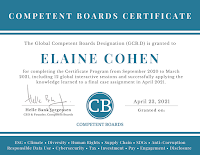


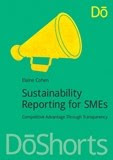
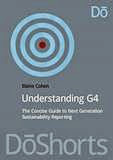
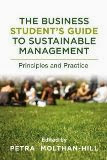
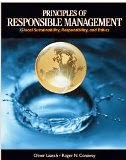
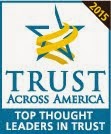










No comments:
Post a Comment